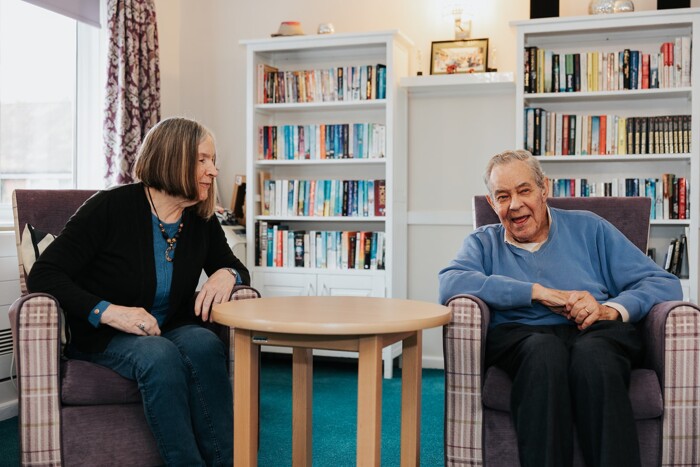The Government's Ten Year Health Plan is being delivered through 3 big shifts: Hospital to Community, Analogue to Digital and Sickness to Prevention.
Below you will find information on some of the ways that we are already working to improve digital access for residents in Hampshire and the Isle of Wight, as well as ensure that we are embracing and optimising new technology to make sure our services are fit for the future, including through:

- Virtual Wards
- Artificial Intelligence
- Supporting people with the NHS App
- Digital Workforce Skills Programme
- Telemedicine - clinical support for care homes
You can find out more about how we are improving digital services in Hampshire and Isle of Wight, as well as read our Digital, Data and Technology Strategy, here.
Virtual wards provide hospital-level care and remote monitoring in a patient’s home. They allow the patient to either to stay at home to receive their care or, after being in hospital, to continue treatment at home where they are most comfortable.
Across Hampshire and the Isle of Wight we currently have 13 virtual wards that cover a range of conditions from strokes to frailty, to respiratory conditions. We treat hundreds of patients on our virtual wards every week.
Thanks to the help of Dora, an artificial intelligence telephone assistant, average waiting times for low-complexity cataract surgery patients in Hampshire and the Isle of Wight have reduced from 35 weeks at the beginning of January 2024, to 10 weeks or less now. Dora calls patients waiting for cataract surgery, speaks to them in a natural voice and gathers medical history.
Dora has allowed us to develop a single point of access for referrals, reducing the burden of admin processes and providing clear options to patients. Using Dora has also allowed us to free-up time for our nursing teams to concentrate on more surgical work while Dora makes the phone calls and completes the administration duty.

We are supporting people locally to make the most out of the NHS app and have a number of Digital Care Coordinators working within our primary care teams to help those who are digitally excluded.
“I would encourage everyone to download and use the NHS App as it is a brilliant resource that allows patients to take control of their healthcare. GPs are busier than ever and are seeing more and more patients, so if patients can use the app to manage appointments, check test results and order repeat prescriptions it really helps us to free up time to see those who need urgent appointments.”
- Dr Tom Bertram, local GP and Clinical Director for Primary and Local Care
The Telemedicine Service offers free support to care homes and their residents across Hampshire and Isle of Wight. The service provides instant access for care homes to virtually talk to a specialist team about their residents who are experiencing a sudden and unexpected decline in their health.
The Telemedicine service for care homes offers an effective means to care for people in the right place and at the right time, providing access to specialist services and teams, and signposting where appropriate. This enables residents to receive faster care in the comfort of their own home, reducing the need to move the resident to an emergency department or another health care setting.

The Digital Workforce Programme is supporting our workforce to be confident and competent with digital transformation, so they can embed change and better support the people they care for. It does this by addressing four core priorities:
- Leadership and culture - Ensuring executives and senior leaders set the right culture to improve and promote digital literacy.
- Digitally enabled workforce - Upskilling our workforce through development of a digital competency framework, digital champion networks, easy access to bitesize self-managed learning tools and resources, and promoting digital inclusion across the whole workforce.
- Design and useability - Understanding and adopting best practice to ensure that users' needs are front and centre of all digital transformation programmes, by ensuring solutions are effective, efficient and engaging to use.
- Digital, Data and Technology (DDaT) Professionals - Supporting our digital leaders and their teams to further enhance their digital skills, building links with the NHS Digital Academy, Faculty of Clinical Informatics, and other professional bodies.
